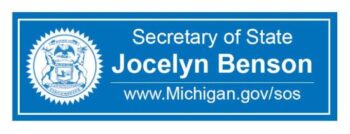Regulated Utilities Extend Protections to June 12
Regulated Utilities Extend Protections, Assistance for Vulnerable Households to June 12
Michigan’s regulated utilities have agreed to extend, through mid-June, the shutoff protections, flexible payment plans and other options they’ve offered to help customers struggling to pay utility bills because of the impact of the coronavirus pandemic.
Utilities, including the state’s two largest Consumers Energy and DTE Energy, have extended protections for vulnerable customers through June 12, 2020, following Gov. Gretchen Whitmer’s extension of her Stay Safer at Home order through that date. Filings with the Michigan Public Service Commission (MPSC) were made by utilities this week in Case No. U-20757 to extend these protections and provide more certainty for customers.
The MPSC in April directed regulated electric and natural gas utilities to file affirmations that certain minimum customer protections were in place. The MPSC’s regulatory jurisdiction does not include municipally owned utilities or rural electric co-operatives, but most of these utilities have observed the call for minimum protections and assistance, which include:
- Suspending disconnections for Michigan’s most vulnerable populations, low-income and senior customers and waiving late fees for eligible low-income customers receiving energy assistance. This includes households facing sudden losses of income or employment because of the pandemic.
- Allowing for customers exposed to, infected by or quarantined because of COVID-19 to be eligible for a 30-day medical hold to avoid a disconnection of service.
- Waiving deposits and reconnection fees for low-income customers, seniors and customers experiencing financial hardship related to COVID-19 and seeking restoration of electric or gas service.
- Extending access to and availability of flexible payment plans to customers financially impacted by COVID-19, and providing customer assistance personnel with the resources necessary to connect customers to available financial assistance and social service agencies.
“The MPSC is encouraged by the utilities’ continued cooperation in assisting customers needing help during such challenging times,” said MPSC Chairman Sally Talberg. “We urge anyone struggling to pay their utility bill to reach out now for help.”
Anyone under financial distress because of COVID-19 is asked to be proactive by:
- Contacting your utility or propane supplier right away to find out what kind of protections, funding, flexible payment options, or energy saving tools and resources are available.
- Calling 211 or go to www.mi211.org for information about getting help paying your utility bills or how to contact agencies that may assist you with your energy bill.
- Applying for State Emergency Relief directly through MI Bridges for bill payment assistance or call 855-275-6424. You can also get assistance with the applications process by calling 211 to be referred to a Michigan Energy Assistance Program grantee that can help.
- Applying for a Home Heating Credit. Visit the Michigan Department of Treasury’s website to see if you qualify. Even though this funding is distributed by the Department of Treasury, you do not need to pay taxes or wait for a tax return to receive this credit, so apply now if you are eligible. For more information, read the MPSC’s Home Heating Credit consumer tip.
Information around this outbreak is changing rapidly. The latest information is available at www.michigan.gov/coronavirus and www.cdc.gov/coronavirus.



